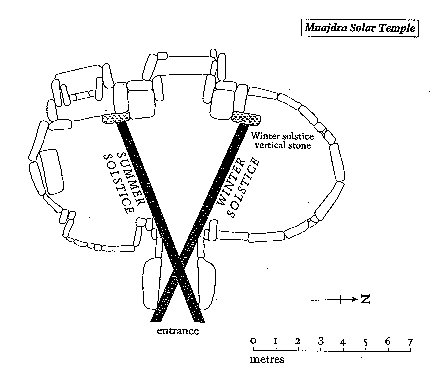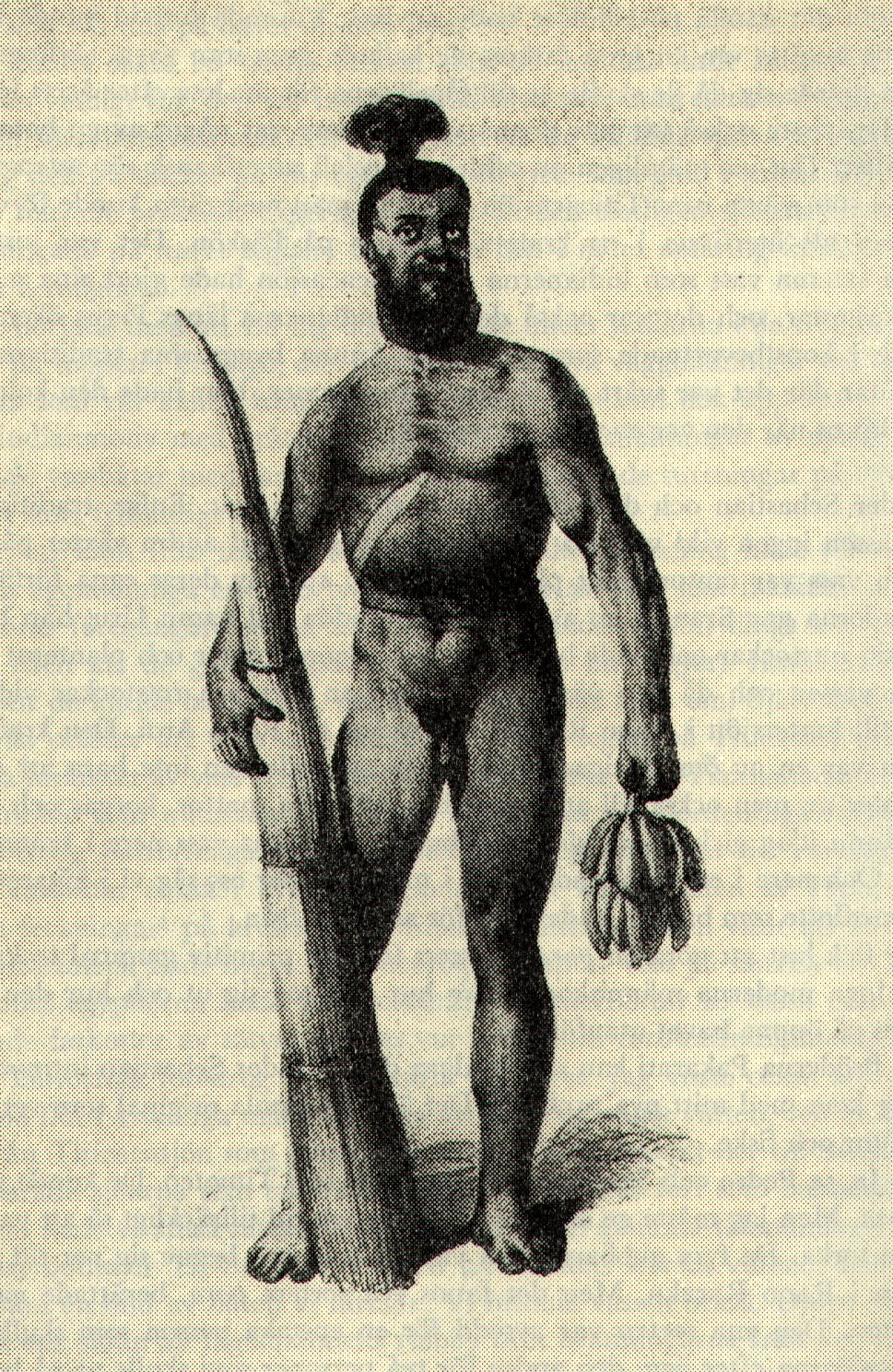|
TRANSLATIONS
The new year probably is expressed by GD88 (mea ke) and the person in Pa5-72 probably is a personification of the first half-year. Therefore (by the logic of opposites) Pa5-67 should be the old year, i.e. we may draw a tentative conclusion that GD18 (niu) means the end of the old year.
It is not unreasonable to find 4 expressed in both these glyphs. We should remember the Inca concept of Tawantinsuyu: "In Andean thought both world and time were divided into four sectors or directions unified under a presiding fifth principle. The Tawantinsuyu - 'the indivisible four quarters' - was unified and presided over by Cusco, the center. Similarly, history was divided into four previous ages, presided over by a fifth, the present ..." (The Two Worlds of Peru) I think we have these 4 cardinal units in GD63 (ariki):
The (earthly) king is presiding on top of the (local) world. Presumably two crossed 'sticks' refer to the sightlines of the two solstices, as seen in GD76 (toga hahe):
and explained in this picture (from Hancock 2):
If these two crossed 'sticks' (really sunbeams received by the observer) now appear on the top of niu, that possibly is to be interpreted as an indication of as far south as possible - at the top - because toga means the winter season and at that time the sun is in his extreme south. I am reminded of this picture:
He has a top knot looking like a bushy tree. And at the same time I also remember that Maui was born from a top knot: "Maui was the fifth and youngest of his parents' sons, yet when he was born his brothers knew nothing of it. They first learned that they had a brother when he was discovered one night standing behind them in the great meeting house. Everyone was present, the four brothers, their mother Taranga, and all the relations, and there was dancing going on, when little Maui crept into the house unseen, and went and sat behind his brothers. When it came to their turn to dance, and their mother stood them up and counted the so as to be ready, he stood up with them. 'One, that's Maui mua; two, that's Maui roto; three, that's Maui taha; four, that's Maui pae', she said; these names mean Maui the first, Maui the middle, Maui the side, and Maui the edge. Then she saw this other child standing with them, and cried out, 'Hullo, where did this one come from?' 'I'm your child too', Maui replied. So she counted them again and said, 'Oh no, there ought to be only four of you. This is the first I've seen of you.' And so there was a scene, with little Maui and the old woman arguing about it in the middle of the rows of dancers. In the end she became annoyed with him. 'Now, come on, out of the house!' she said. 'You are no child of mine, you belong to someone else. Go home!' But little Maui stood up for himself. 'Well then, I'd better go, I suppose', he said. 'Since you say so, I must be someone else's child. But I did think I was yours, because I know I was born at the edge of the sea, and you cut off a tuft of your hair and wrapped me in it and threw me in the waves. After that the seaweed took care of me and I drifted about in the sea, wrapped in long tangles of kelp, until a breeze blew me on shore again, and some jelly-fish rolled themself around me to protect me on the sandy beach. Clouds of flies settled on me and I might have been eaten up by the maggots; flocks of seabirds came, and I might have been pecked to pieces. But then my great-ancestor Tama nui ki te rangi arrived. He saw the clouds of flies and all the birds, and he came and pulled away the jelly-fish, and there was I, a human being! Well, he picked me up and washed me and took me home, and hung me in the rafters in the warmth of the fire, and he saved my life. And I grew, and eventually I heard about the dancing you have here in this house, and that is what brought me here tonight.' Now Taranga listened to all this in amazement. For in the custom of our people, if a child was born before it finished growing in its mother's womb and died without knowing any of the pleasures of life, it was supposed to be buried with special prayers and ceremonies, otherwise it became a kind of evil spirit, always doing mischief to the human race and hurting them out of spite, because of having missed the happiness that they enjoy. All the evil spirits had a beginning of this sort. So Maui was a little demi-god of mischief. The story he had told was true, and as his mother listened she remembered it all. 'From the time I was in your womb,' Maui went on, 'I have known the names of these children of yours. Listen,' he said as he pointed to his brothers in turn. 'You are Maui mua, you are Maui roto, you are Maui taha, and you are Maui pae. And as for me, I am Maui potiki, Maui-the-last-born. And here I am.' When he had finished, Taranga had to wipe her eyes because there were tears in them, and she said: 'You are indeed my lastborn son. You are the child of my old age. When I had you, no one knew, and what you have been saying is the truth. Well, as your were formed out of my topknot you can be Maui tikitiki a Taranga.' So that became his name, meaning Maui-formed-in-the-topknot-of-Taranga. And this is very strange, because women in those days did not have topknots. The topknot was the most sacred part of a person, and only men had them." (Maori Myths) Maybe Metoro had Maui in mind when he commented upon Ca5-16:
Because heu is a special child:
Seaweed and jelly-fish took care of Maui when he was newly born, which is strangely reminiscent of the tangles in the report from the explorers to Hotu Matu'a: '... The growing shoots cannot spread. / Too long is the tangle (of weeds) ...' '... The original yam cannot slide out / because of the long seaweeds ...' '... The octopus is hiding in his ink. / His tentacles sway like seeweeds ...' '... in the long tangle (of the pubic hair) ...' But seaweed also makes us think about the 12th station in the exploration journey of the kuhane of Hau Maka, viz. Roto ire are, because ire are is a seaweed. Presumably we should interpret the (sign of) seaweed as meaning the rosy fingers of dawn (on the surface of the sea), the time of birth (of the sun). |







